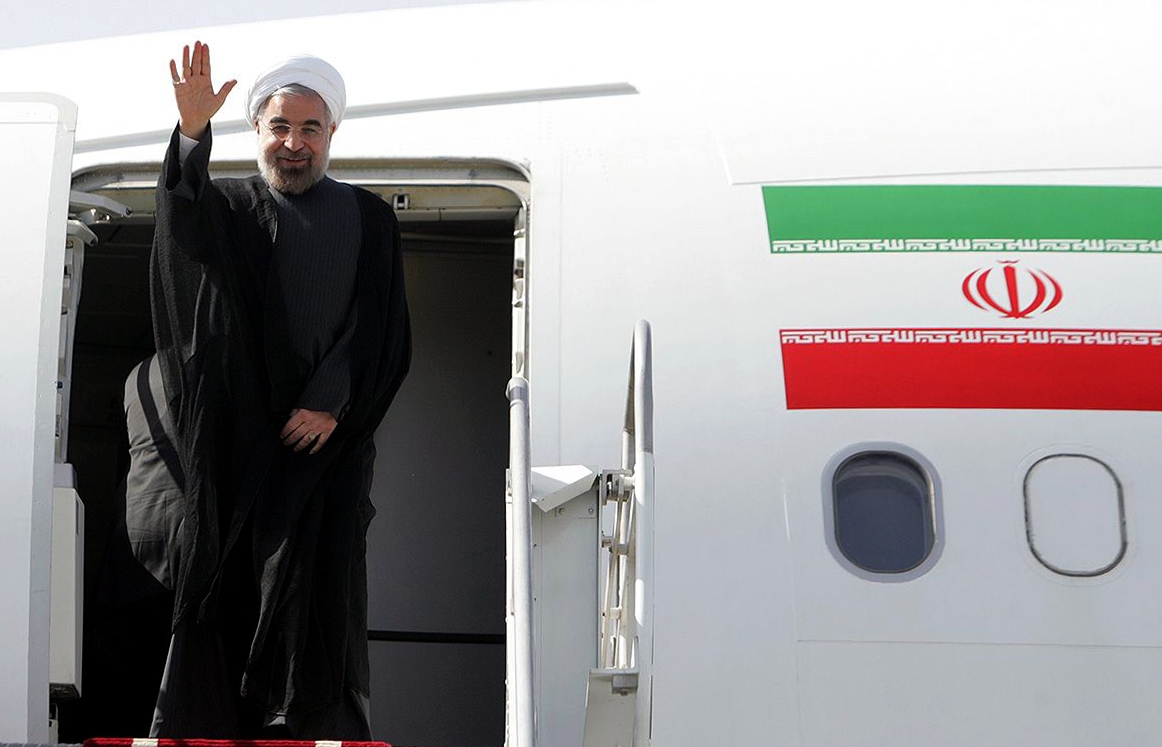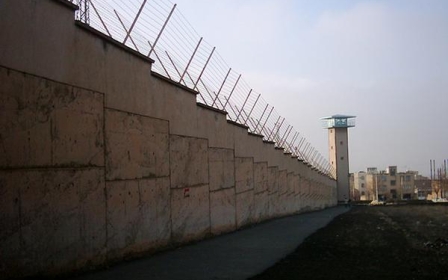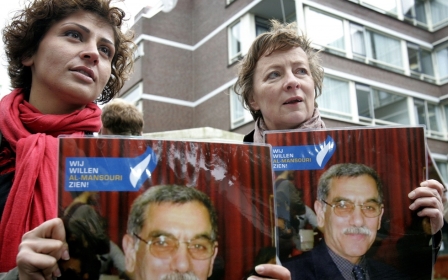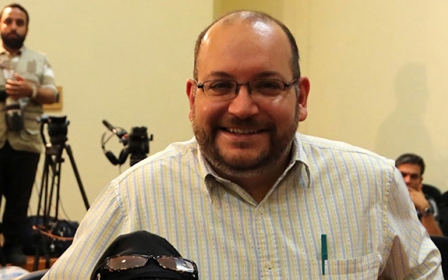Iranians abroad: Prison, life terms, and execution

An advisor to Iran's Justice Ministry, Shahrokh Hedayati, has announced that more than 3,000 Iranian nationals are being held in prisons abroad. The announcement came almost a week after an Iranian was executed in Saudi Arabia on a charge of drug trafficking.
The Iranian national, convicted of “an attempt to smuggle Hashish by sea into Saudi Arabia”, was beheaded on 2 September, according to a statement from the Saudi Ministry of Interior published by Saudi Press Agency.
The Iranian convict and three Syrians were decapitated by sword in northern and eastern Saudi Arabia. Iran summoned the Saudi charge d’affaires in Tehran to hear the Islamic Republic’s protest against the beheading of its citizen.
Iran’s Deputy Foreign Minister for Consular, Parliamentary and Iranian Expatriates’ Affairs, Hassan Qashqavi, said on Thursday the act by the Saudi government was unacceptable. “We didn’t expect the execution. Our consular officials were not allowed to engage in the judicial procedures. The man was not allowed to contact any lawyer, and they didn’t inform us about his verdict,” said Qashqavi.
Based on Article 36 of the Vienna Convention on Consular Relations (1963), to which both Iran and Saudi Arabia are signatory states, when a national of a foreign country is arrested or detained on criminal or immigration charges, the detainee must be advised “without delay” of the right to have the detainee’s consulate notified and that the detainee has the right to regular consultation with consular officials during detention and any trial.
In mid-April 2012, the Saudi Al-Tagheer news channel reported that eight out of 25 Iranian sailors who had been arrested on a fishing boat 70 miles off the coast of Saudi Arabia six years before on charge of drug possession had been executed. A month later, 10 more were executed at the same prison in the city of Dammam. Iran reacted seriously and some Members of Parliament asked for the expulsion of the Saudi envoy to Tehran.
In 1985, the Seventh UN Congress on the Prevention of Crime and the Treatment of Offenders adopted the UN Model Agreement on the Transfer of Foreign Prisoners. Accordingly, countries may adopt bilateral or multilateral agreements - based on their legal systems - to transfer sentenced prisoners to serve their sentences in their home country. Iran and Saudi Arabia have not yet signed a prisoner-transfer agreement.
Iran at present has bilateral agreements for “transfer of sentenced persons” with 11 countries, and according to Hedayati, “agreements with China and Armenia await ratification by parliaments from the two sides”. The countries that have signed transfer of sentenced persons agreement with Iran are: Turkey, Syria, Thailand, Azerbaijan, Afghanistan, Tajikistan, Algeria, Ukraine, Kuwait, India and Iraq.
According to Iran’s Foreign Ministry, there are about 4 to 5 million Iranians living outside the country. The director general of the Office of Iranians Abroad of the Iranian Foreign Ministry, Kazem Sajadi, announced in early May that 3,230 Iranian nationals were held in foreign countries’ prisons. Of these, 2,680 inmates were being held in Asia, and 550 in Europe and the Americas. He said the Foreign Ministry had been able to free 2,200 Iranians from prisons abroad in the past three years.
Although Saudi Arabia has the least number of Iranian prisoners among the countries in the region, it is the only one that has executed Iranian nationals on charge of drug trafficking. At present, 22 Iranians are held in Saudi prisons. At least 45 people, from different countries, have been sentenced to death in Saudi Arabia this year. The Saudi government carries out capital punishments mostly by beheading.
Almost 1,900 Iranian inmates are held in neighbouring countries and Persian Gulf states; 90 percent are charged with drug-related crimes. According to Iranian Foreign Ministry statistics, most Iranian nationals imprisoned abroad are held in Turkey, United Arab Emirates, Iraq and Indonesia. A consideration of the problem country-by-country follows.
Turkey: 459 Iranians are imprisoned in Iran’s neighbor, Turkey. Iranian passport holders are exempt from requiring a visa for visits of up to 90 days. That has helped it become an attractive place human traffickers from Iran, while many of the Iranians held in Turkey are convicted for drug trafficking.
United Arab Emirates: 450 Iranian citizens are imprisoned in the country. Their main crimes are illegal entry, drug trafficking and fraud.
Iraq: 236 Iranians have been sentenced to prison in Iraq, mostly on drug-related charges. An agreement between Iran and Iraq on prisoner exchange has become effective and the two countries are acting accordingly. A further 200 Iranian prisoners are held in Iraqi Kurdistan. Transfer of these prisoners still needs implementation of the signed agreement by the Kurdistan Regional Government.
Indonesia: The Indonesian Ambassador to Tehran, Dian Wirengjurit, has announced that as many as 486 Iranian nationals are held in Indonesia. Among them, 47 inmates have received death sentences because of engagement in drug trafficking. In Indonesia, if the volume of drugs exceeds 1 kilogram for raw drugs (such as marijuana) or 5 grams for processed drugs (like heroin and cocaine), the death penalty might be imposed.
Indonesia has not signed any mutual agreement on transfer of sentenced persons with other countries and it has been reluctant to consider initiatives from the Iranian side. In addition to those held on drug-related issues, asylum seekers, many of them Iranians, enter Indonesia or other transit countries with forged travel or identity documents. Then they may rip up their passports and identification documents before trying to head illegally for Australia.
Hundreds of Iranians are imprisoned in other countries close to Iran.
Turkmenistan: Most of the 243 Iranian prisoners in Turkmenistan are transit truck drivers who have been engaged in drug trafficking. Iran is following legal procedures to sign a transfer of sentenced persons agreement with the country.
Azerbaijan: 230 Iranian nationals are kept in Azerbaijan prisons, mostly on charges related to drugs or illegal entry. The two countries have signed a transfer of sentenced persons. Recently, five Azerbaijani prisoners held in Iran were transferred to their home country. The Iran Ambassador to Azerbaijan, Mohsen Pakaeen, this month announced that 65 Iranian prisoners held in Azerbaijan had been transferred to Iran and another 35 would be transferred in the coming weeks.
Kuwait: 225 Iranian inmates are held in Kuwait. The two countries have signed a mutual agreement on transfer of sentenced persons but it has not been implemented on a regular basis.
Qatar: There are also 81 Iranians imprisoned in Qatar, 52 in Afghanistan, 20 in Georgia, and 17 in Armenia. Many more are held further afield.
Altogether, around 800 Iranian prisoners are held in east and south-east Asian countries.
Malaysia: This Southeast Asian country holds the highest number of Iranian inmates whose lives are at stake: at least 86 Iranian prisoners out of 229 held in Malaysia, most of them on drug-related charges, have been sentenced to death. There are almost 30 women among the prisoners.
Meanwhile, the Iranian Foreign Ministry’s Office of Iranians Abroad has been active in Malaysia to prevent their execution. Some Iranians living in Malaysia have also formed NGOs to support the prisoners whom they believe “have been abused by drug smuggling networks in Malaysia”. Around 100,000 Iranians live and study in Malaysia.
Iranian citizens imprisoned in Malaysia on drug-related charges can be divided into two groups: those who are skilled drug smugglers and those who are victims. “The smugglers know how to save themselves; they have their own connections and they have money,” said Sharareh Saeedi, a human rights activist in Malaysia who works with others to support the “Iranian victims” of drug trafficking. She told Middle East Eye: “The victims are those who have been abused and have not been aware of the drugs they were carrying, and the ones who are in need of money and have agreed to carry drug packages or capsules to receive a sum of money sometimes as low as 10 million rials (US$300).” Saeedi said the number of Iranian inmates on death row has increased to 90.
According to investigations, most of Iranians detained in Malaysia convicted of drug trafficking are victims of organized smuggling groups who entice them with free travel to the country and ask them to carry certain packages within their luggage, said General Ali Moayedi, head of Iran's anti-narcotics police.
Malaysian legislation provides for a mandatory death penalty for convicted drug traffickers. Individuals arrested in possession of 15 grams of heroin or 200 grams of marijuana are presumed by law to be trafficking in drugs.
Amir, an Iranian student, who has recently been released after spending three years in Malaysian prisons, talked about the conditions under which the inmates are held. When he was leaving Tehran’s Imam Khomeini Airport heading for Kuala Lumpur, an elderly lady asked him to carry a small package and deliver it to her son, who would be waiting for him in Kuala Lumpur airport.
“I felt some sympathy for her and accepted. When I was detained in Kuala Lumpur, I just understood that the package contained amphetamines,” Amir said.
“They [Malaysian prison authorities] treat Iranians awfully. Those who are sentenced to death are kept in solitary confinement and are controlled by CCTVs all day and night. Warders were insolent. Almost all the time, we were hungry; they provided a small amount of food once per day.”
Iranian authorities are working with the Malaysian side to finalize a mutual agreement on the transfer of sentenced persons.
Japan: 194 Iranian nationals are held in Japanese prisons, mostly on charges related to drug possession and trafficking, theft and illegal residence. Last year, three rounds of negotiations were held between Iranian and Japanese authorities to sign an agreement to transfer sentenced prisoners but it hasn’t been finalized. From time to time, Iranian inmates’ families gather in front of Japan’s embassy in Tehran to protest against the way Japanese authorities behave towards imprisoned Iranian nationals.
Thailand: 110 out of 172 Iranian nationals held in prison have received life sentences. Thai prisons contain numerous travellers sentenced to life for drug-related charges.
China: 32 Iranian nationals are held in China’s prisons, a relatively small number given the broad commercial connections between Iran and China and the large number of travellers between the two countries. Beijing and Tehran are finalizing an agreement on the transfer of sentenced persons, and the Chinese authorities have ex parte transferred Iranian prisoners to serve their sentences in their home country.
Europe and the Americas: Some Iranian nationals held in European countries’ prisons prefer not to contact Iranian consular officials, perhaps because of the political or residential conditions. As a result, the current statistics are not necessarily accurate. Iran’s Foreign Ministry have announced that 15 Iranians are at present held in US prisons, mostly on charges related to sanctions against Iran.
Insisting on the significance of the issue for the government, Iran's Foreign Ministry Spokeswoman Marzieh Afkham said, the matter of Iranian nationals imprisoned abroad is considered as a separate file in the Foreign Ministry, and diplomatic, judicial and legal procedures are being pushed forward concurrently.
Middle East Eye propose une couverture et une analyse indépendantes et incomparables du Moyen-Orient, de l’Afrique du Nord et d’autres régions du monde. Pour en savoir plus sur la reprise de ce contenu et les frais qui s’appliquent, veuillez remplir ce formulaire [en anglais]. Pour en savoir plus sur MEE, cliquez ici [en anglais].




